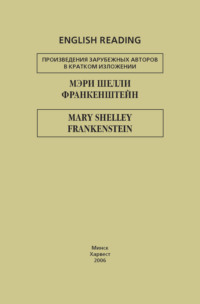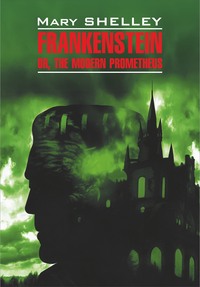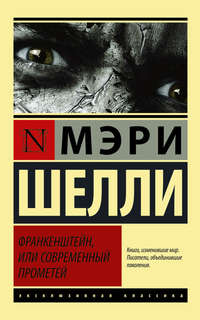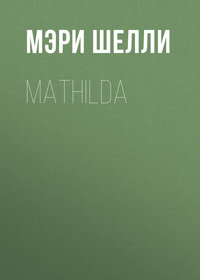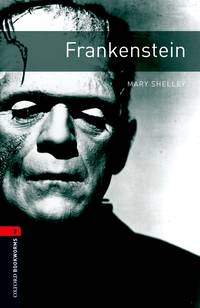 полная версия
полная версияThe Last Man
The contest was keen and doubtful. Neither Adrian nor myself would have been so anxious, if our own success had depended on our exertions; but we had egged our friend on to the enterprise, and it became us to ensure his triumph. Idris, who entertained the highest opinion of his abilities, was warmly interested in the event: and my poor sister, who dared not hope, and to whom fear was misery, was plunged into a fever of disquietude.
Day after day passed while we discussed our projects for the evening, and each night was occupied by debates which offered no conclusion. At last the crisis came: the night when parliament, which had so long delayed its choice, must decide: as the hour of twelve passed, and the new day began, it was by virtue of the constitution dissolved, its power extinct.
We assembled at Raymond's house, we and our partizans. At half past five o'clock we proceeded to the House. Idris endeavoured to calm Perdita; but the poor girl's agitation deprived her of all power of self-command. She walked up and down the room, – gazed wildly when any one entered, fancying that they might be the announcers of her doom. I must do justice to my sweet sister: it was not for herself that she was thus agonized. She alone knew the weight which Raymond attached to his success. Even to us he assumed gaiety and hope, and assumed them so well, that we did not divine the secret workings of his mind. Sometimes a nervous trembling, a sharp dissonance of voice, and momentary fits of absence revealed to Perdita the violence he did himself; but we, intent on our plans, observed only his ready laugh, his joke intruded on all occasions, the flow of his spirits which seemed incapable of ebb. Besides, Perdita was with him in his retirement; she saw the moodiness that succeeded to this forced hilarity; she marked his disturbed sleep, his painful irritability – once she had seen his tears – hers had scarce ceased to flow, since she had beheld the big drops which disappointed pride had caused to gather in his eye, but which pride was unable to dispel. What wonder then, that her feelings were wrought to this pitch! I thus accounted to myself for her agitation; but this was not all, and the sequel revealed another excuse.
One moment we seized before our departure, to take leave of our beloved girls. I had small hope of success, and entreated Idris to watch over my sister. As I approached the latter, she seized my hand, and drew me into another apartment; she threw herself into my arms, and wept and sobbed bitterly and long. I tried to soothe her; I bade her hope; I asked what tremendous consequences would ensue even on our failure. "My brother," she cried, "protector of my childhood, dear, most dear Lionel, my fate hangs by a thread. I have you all about me now – you, the companion of my infancy; Adrian, as dear to me as if bound by the ties of blood; Idris, the sister of my heart, and her lovely offspring. This, O this may be the last time that you will surround me thus!"
Abruptly she stopped, and then cried: "What have I said? – foolish false girl that I am!" She looked wildly on me, and then suddenly calming herself, apologized for what she called her unmeaning words, saying that she must indeed be insane, for, while Raymond lived, she must be happy; and then, though she still wept, she suffered me tranquilly to depart. Raymond only took her hand when he went, and looked on her expressively; she answered by a look of intelligence and assent.
Poor girl! what she then suffered! I could never entirely forgive Raymond for the trials he imposed on her, occasioned as they were by a selfish feeling on his part. He had schemed, if he failed in his present attempt, without taking leave of any of us, to embark for Greece, and never again to revisit England. Perdita acceded to his wishes; for his contentment was the chief object of her life, the crown of her enjoyment; but to leave us all, her companions, the beloved partners of her happiest years, and in the interim to conceal this frightful determination, was a task that almost conquered her strength of mind. She had been employed in arranging for their departure; she had promised Raymond during this decisive evening, to take advantage of our absence, to go one stage of the journey, and he, after his defeat was ascertained, would slip away from us, and join her.
Although, when I was informed of this scheme, I was bitterly offended by the small attention which Raymond paid to my sister's feelings, I was led by reflection to consider, that he acted under the force of such strong excitement, as to take from him the consciousness, and, consequently, the guilt of a fault. If he had permitted us to witness his agitation, he would have been more under the guidance of reason; but his struggles for the shew of composure, acted with such violence on his nerves, as to destroy his power of self-command. I am convinced that, at the worst, he would have returned from the seashore to take leave of us, and to make us the partners of his council. But the task imposed on Perdita was not the less painful. He had extorted from her a vow of secrecy; and her part of the drama, since it was to be performed alone, was the most agonizing that could be devised. But to return to my narrative.
The debates had hitherto been long and loud; they had often been protracted merely for the sake of delay. But now each seemed fearful lest the fatal moment should pass, while the choice was yet undecided. Unwonted silence reigned in the house, the members spoke in whispers, and the ordinary business was transacted with celerity and quietness. During the first stage of the election, the Duke of – had been thrown out; the question therefore lay between Lord Raymond and Mr. Ryland. The latter had felt secure of victory, until the appearance of Raymond; and, since his name had been inserted as a candidate, he had canvassed with eagerness. He had appeared each evening, impatience and anger marked in his looks, scowling on us from the opposite side of St. Stephen's, as if his mere frown would cast eclipse on our hopes.
Every thing in the English constitution had been regulated for the better preservation of peace. On the last day, two candidates only were allowed to remain; and to obviate, if possible, the last struggle between these, a bribe was offered to him who should voluntarily resign his pretensions; a place of great emolument and honour was given him, and his success facilitated at a future election. Strange to say however, no instance had yet occurred, where either candidate had had recourse to this expedient; in consequence the law had become obsolete, nor had been referred to by any of us in our discussions. To our extreme surprise, when it was moved that we should resolve ourselves into a committee for the election of the Lord Protector, the member who had nominated Ryland, rose and informed us that this candidate had resigned his pretensions. His information was at first received with silence; a confused murmur succeeded; and, when the chairman declared Lord Raymond duly chosen, it amounted to a shout of applause and victory. It seemed as if, far from any dread of defeat even if Mr. Ryland had not resigned, every voice would have been united in favour of our candidate. In fact, now that the idea of contest was dismissed, all hearts returned to their former respect and admiration of our accomplished friend. Each felt, that England had never seen a Protector so capable of fulfilling the arduous duties of that high office. One voice made of many voices, resounded through the chamber; it syllabled the name of Raymond.
He entered. I was on one of the highest seats, and saw him walk up the passage to the table of the speaker. The native modesty of his disposition conquered the joy of his triumph. He looked round timidly; a mist seemed before his eyes. Adrian, who was beside me, hastened to him, and jumping down the benches, was at his side in a moment. His appearance re-animated our friend; and, when he came to speak and act, his hesitation vanished, and he shone out supreme in majesty and victory. The former Protector tendered him the oaths, and presented him with the insignia of office, performing the ceremonies of installation. The house then dissolved. The chief members of the state crowded round the new magistrate, and conducted him to the palace of government. Adrian suddenly vanished; and, by the time that Raymond's supporters were reduced to our intimate friends merely, returned leading Idris to congratulate her friend on his success.
But where was Perdita? In securing solicitously an unobserved retreat in case of failure, Raymond had forgotten to arrange the mode by which she was to hear of his success; and she had been too much agitated to revert to this circumstance. When Idris entered, so far had Raymond forgotten himself, that he asked for my sister; one word, which told of her mysterious disappearance, recalled him. Adrian it is true had already gone to seek the fugitive, imagining that her tameless anxiety had led her to the purlieus of the House, and that some sinister event detained her. But Raymond, without explaining himself, suddenly quitted us, and in another moment we heard him gallop down the street, in spite of the wind and rain that scattered tempest over the earth. We did not know how far he had to go, and soon separated, supposing that in a short time he would return to the palace with Perdita, and that they would not be sorry to find themselves alone.
Perdita had arrived with her child at Dartford, weeping and inconsolable. She directed everything to be prepared for the continuance of their journey, and placing her lovely sleeping charge on a bed, passed several hours in acute suffering. Sometimes she observed the war of elements, thinking that they also declared against her, and listened to the pattering of the rain in gloomy despair. Sometimes she hung over her child, tracing her resemblance to the father, and fearful lest in after life she should display the same passions and uncontrollable impulses, that rendered him unhappy. Again, with a gush of pride and delight, she marked in the features of her little girl, the same smile of beauty that often irradiated Raymond's countenance. The sight of it soothed her. She thought of the treasure she possessed in the affections of her lord; of his accomplishments, surpassing those of his contemporaries, his genius, his devotion to her. – Soon she thought, that all she possessed in the world, except him, might well be spared, nay, given with delight, a propitiatory offering, to secure the supreme good she retained in him. Soon she imagined, that fate demanded this sacrifice from her, as a mark she was devoted to Raymond, and that it must be made with cheerfulness. She figured to herself their life in the Greek isle he had selected for their retreat; her task of soothing him; her cares for the beauteous Clara, her rides in his company, her dedication of herself to his consolation. The picture then presented itself to her in such glowing colours, that she feared the reverse, and a life of magnificence and power in London; where Raymond would no longer be hers only, nor she the sole source of happiness to him. So far as she merely was concerned, she began to hope for defeat; and it was only on his account that her feelings vacillated, as she heard him gallop into the court-yard of the inn. That he should come to her alone, wetted by the storm, careless of every thing except speed, what else could it mean, than that, vanquished and solitary, they were to take their way from native England, the scene of shame, and hide themselves in the myrtle groves of the Grecian isles?
In a moment she was in his arms. The knowledge of his success had become so much a part of himself, that he forgot that it was necessary to impart it to his companion. She only felt in his embrace a dear assurance that while he possessed her, he would not despair. "This is kind," she cried; "this is noble, my own beloved! O fear not disgrace or lowly fortune, while you have your Perdita; fear not sorrow, while our child lives and smiles. Let us go even where you will; the love that accompanies us will prevent our regrets."
Locked in his embrace, she spoke thus, and cast back her head, seeking an assent to her words in his eyes – they were sparkling with ineffable delight. "Why, my little Lady Protectress," said he, playfully, "what is this you say? And what pretty scheme have you woven of exile and obscurity, while a brighter web, a gold-enwoven tissue, is that which, in truth, you ought to contemplate?"
He kissed her brow – but the wayward girl, half sorry at his triumph, agitated by swift change of thought, hid her face in his bosom and wept. He comforted her; he instilled into her his own hopes and desires; and soon her countenance beamed with sympathy. How very happy were they that night! How full even to bursting was their sense of joy!
CHAPTER VII
HAVING seen our friend properly installed in his new office, we turned our eyes towards Windsor. The nearness of this place to London was such, as to take away the idea of painful separation, when we quitted Raymond and Perdita. We took leave of them in the Protectoral Palace. It was pretty enough to see my sister enter as it were into the spirit of the drama, and endeavour to fill her station with becoming dignity. Her internal pride and humility of manner were now more than ever at war. Her timidity was not artificial, but arose from that fear of not being properly appreciated, that slight estimation of the neglect of the world, which also characterized Raymond. But then Perdita thought more constantly of others than he; and part of her bashfulness arose from a wish to take from those around her a sense of inferiority; a feeling which never crossed her mind. From the circumstances of her birth and education, Idris would have been better fitted for the formulae of ceremony; but the very ease which accompanied such actions with her, arising from habit, rendered them tedious; while, with every drawback, Perdita evidently enjoyed her situation. She was too full of new ideas to feel much pain when we departed; she took an affectionate leave of us, and promised to visit us soon; but she did not regret the circumstances that caused our separation. The spirits of Raymond were unbounded; he did not know what to do with his new got power; his head was full of plans; he had as yet decided on none – but he promised himself, his friends, and the world, that the aera of his Protectorship should be signalized by some act of surpassing glory. Thus, we talked of them, and moralized, as with diminished numbers we returned to Windsor Castle. We felt extreme delight at our escape from political turmoil, and sought our solitude with redoubled zest. We did not want for occupation; but my eager disposition was now turned to the field of intellectual exertion only; and hard study I found to be an excellent medicine to allay a fever of spirit with which in indolence, I should doubtless have been assailed. Perdita had permitted us to take Clara back with us to Windsor; and she and my two lovely infants were perpetual sources of interest and amusement.
The only circumstance that disturbed our peace, was the health of Adrian. It evidently declined, without any symptom which could lead us to suspect his disease, unless indeed his brightened eyes, animated look, and flustering cheeks, made us dread consumption; but he was without pain or fear. He betook himself to books with ardour, and reposed from study in the society he best loved, that of his sister and myself. Sometimes he went up to London to visit Raymond, and watch the progress of events. Clara often accompanied him in these excursions; partly that she might see her parents, partly because Adrian delighted in the prattle, and intelligent looks of this lovely child.
Meanwhile all went on well in London. The new elections were finished; parliament met, and Raymond was occupied in a thousand beneficial schemes. Canals, aqueducts, bridges, stately buildings, and various edifices for public utility, were entered upon; he was continually surrounded by projectors and projects, which were to render England one scene of fertility and magnificence; the state of poverty was to be abolished; men were to be transported from place to place almost with the same facility as the Princes Houssain, Ali, and Ahmed, in the Arabian Nights. The physical state of man would soon not yield to the beatitude of angels; disease was to be banished; labour lightened of its heaviest burden. Nor did this seem extravagant. The arts of life, and the discoveries of science had augmented in a ratio which left all calculation behind; food sprung up, so to say, spontaneously – machines existed to supply with facility every want of the population. An evil direction still survived; and men were not happy, not because they could not, but because they would not rouse themselves to vanquish self-raised obstacles. Raymond was to inspire them with his beneficial will, and the mechanism of society, once systematised according to faultless rules, would never again swerve into disorder. For these hopes he abandoned his long-cherished ambition of being enregistered in the annals of nations as a successful warrior; laying aside his sword, peace and its enduring glories became his aim – the title he coveted was that of the benefactor of his country.
Among other works of art in which he was engaged, he had projected the erection of a national gallery for statues and pictures. He possessed many himself, which he designed to present to the Republic; and, as the edifice was to be the great ornament of his Protectorship, he was very fastidious in his choice of the plan on which it would be built. Hundreds were brought to him and rejected. He sent even to Italy and Greece for drawings; but, as the design was to be characterized by originality as well as by perfect beauty, his endeavours were for a time without avail. At length a drawing came, with an address where communications might be sent, and no artist's name affixed. The design was new and elegant, but faulty; so faulty, that although drawn with the hand and eye of taste, it was evidently the work of one who was not an architect. Raymond contemplated it with delight; the more he gazed, the more pleased he was; and yet the errors multiplied under inspection. He wrote to the address given, desiring to see the draughtsman, that such alterations might be made, as should be suggested in a consultation between him and the original conceiver.
A Greek came. A middle-aged man, with some intelligence of manner, but with so common-place a physiognomy, that Raymond could scarcely believe that he was the designer. He acknowledged that he was not an architect; but the idea of the building had struck him, though he had sent it without the smallest hope of its being accepted. He was a man of few words. Raymond questioned him; but his reserved answers soon made him turn from the man to the drawing. He pointed out the errors, and the alterations that he wished to be made; he offered the Greek a pencil that he might correct the sketch on the spot; this was refused by his visitor, who said that he perfectly understood, and would work at it at home. At length Raymond suffered him to depart.
The next day he returned. The design had been re-drawn; but many defects still remained, and several of the instructions given had been misunderstood. "Come," said Raymond, "I yielded to you yesterday, now comply with my request – take the pencil."
The Greek took it, but he handled it in no artist-like way; at length he said: "I must confess to you, my Lord, that I did not make this drawing. It is impossible for you to see the real designer; your instructions must pass through me. Condescend therefore to have patience with my ignorance, and to explain your wishes to me; in time I am certain that you will be satisfied."
Raymond questioned vainly; the mysterious Greek would say no more. Would an architect be permitted to see the artist? This also was refused. Raymond repeated his instructions, and the visitor retired. Our friend resolved however not to be foiled in his wish. He suspected, that unaccustomed poverty was the cause of the mystery, and that the artist was unwilling to be seen in the garb and abode of want. Raymond was only the more excited by this consideration to discover him; impelled by the interest he took in obscure talent, he therefore ordered a person skilled in such matters, to follow the Greek the next time he came, and observe the house in which he should enter. His emissary obeyed, and brought the desired intelligence. He had traced the man to one of the most penurious streets in the metropolis. Raymond did not wonder, that, thus situated, the artist had shrunk from notice, but he did not for this alter his resolve.
On the same evening, he went alone to the house named to him. Poverty, dirt, and squalid misery characterized its appearance. Alas! thought Raymond, I have much to do before England becomes a Paradise. He knocked; the door was opened by a string from above – the broken, wretched staircase was immediately before him, but no person appeared; he knocked again, vainly – and then, impatient of further delay, he ascended the dark, creaking stairs. His main wish, more particularly now that he witnessed the abject dwelling of the artist, was to relieve one, possessed of talent, but depressed by want. He pictured to himself a youth, whose eyes sparkled with genius, whose person was attenuated by famine. He half feared to displease him; but he trusted that his generous kindness would be administered so delicately, as not to excite repulse. What human heart is shut to kindness? and though poverty, in its excess, might render the sufferer unapt to submit to the supposed degradation of a benefit, the zeal of the benefactor must at last relax him into thankfulness. These thoughts encouraged Raymond, as he stood at the door of the highest room of the house. After trying vainly to enter the other apartments, he perceived just within the threshold of this one, a pair of small Turkish slippers; the door was ajar, but all was silent within. It was probable that the inmate was absent, but secure that he had found the right person, our adventurous Protector was tempted to enter, to leave a purse on the table, and silently depart. In pursuance of this idea, he pushed open the door gently – but the room was inhabited.
Raymond had never visited the dwellings of want, and the scene that now presented itself struck him to the heart. The floor was sunk in many places; the walls ragged and bare – the ceiling weather-stained – a tattered bed stood in the corner; there were but two chairs in the room, and a rough broken table, on which was a light in a tin candlestick; – yet in the midst of such drear and heart sickening poverty, there was an air of order and cleanliness that surprised him. The thought was fleeting; for his attention was instantly drawn towards the inhabitant of this wretched abode. It was a female. She sat at the table; one small hand shaded her eyes from the candle; the other held a pencil; her looks were fixed on a drawing before her, which Raymond recognized as the design presented to him. Her whole appearance awakened his deepest interest. Her dark hair was braided and twined in thick knots like the head-dress of a Grecian statue; her garb was mean, but her attitude might have been selected as a model of grace. Raymond had a confused remembrance that he had seen such a form before; he walked across the room; she did not raise her eyes, merely asking in Romaic, who is there? "A friend," replied Raymond in the same dialect. She looked up wondering, and he saw that it was Evadne Zaimi. Evadne, once the idol of Adrian's affections; and who, for the sake of her present visitor, had disdained the noble youth, and then, neglected by him she loved, with crushed hopes and a stinging sense of misery, had returned to her native Greece. What revolution of fortune could have brought her to England, and housed her thus?
Raymond recognized her; and his manner changed from polite beneficence to the warmest protestations of kindness and sympathy. The sight of her, in her present situation, passed like an arrow into his soul. He sat by her, he took her hand, and said a thousand things which breathed the deepest spirit of compassion and affection. Evadne did not answer; her large dark eyes were cast down, at length a tear glimmered on the lashes. "Thus," she cried, "kindness can do, what no want, no misery ever effected; I weep." She shed indeed many tears; her head sunk unconsciously on the shoulder of Raymond; he held her hand: he kissed her sunken tear-stained cheek. He told her, that her sufferings were now over: no one possessed the art of consoling like Raymond; he did not reason or declaim, but his look shone with sympathy; he brought pleasant images before the sufferer; his caresses excited no distrust, for they arose purely from the feeling which leads a mother to kiss her wounded child; a desire to demonstrate in every possible way the truth of his feelings, and the keenness of his wish to pour balm into the lacerated mind of the unfortunate. As Evadne regained her composure, his manner became even gay; he sported with the idea of her poverty. Something told him that it was not its real evils that lay heavily at her heart, but the debasement and disgrace attendant on it; as he talked, he divested it of these; sometimes speaking of her fortitude with energetic praise; then, alluding to her past state, he called her his Princess in disguise. He made her warm offers of service; she was too much occupied by more engrossing thoughts, either to accept or reject them; at length he left her, making a promise to repeat his visit the next day. He returned home, full of mingled feelings, of pain excited by Evadne's wretchedness, and pleasure at the prospect of relieving it. Some motive for which he did not account, even to himself, prevented him from relating his adventure to Perdita.




